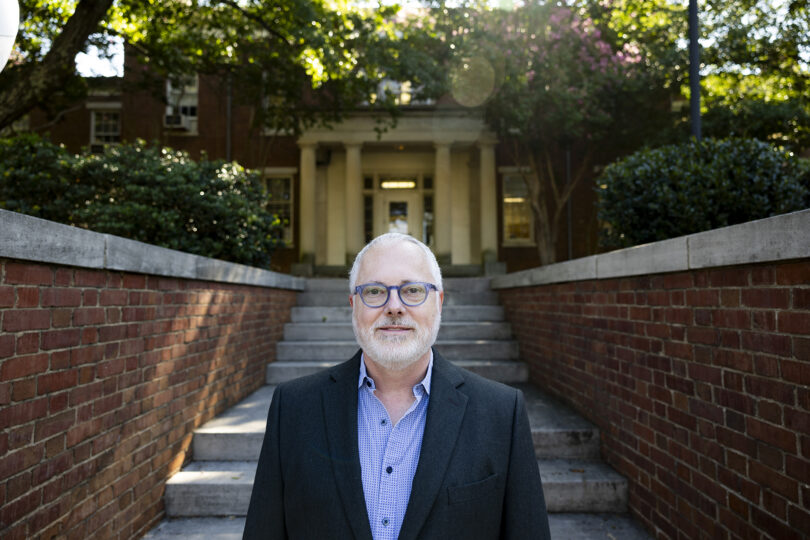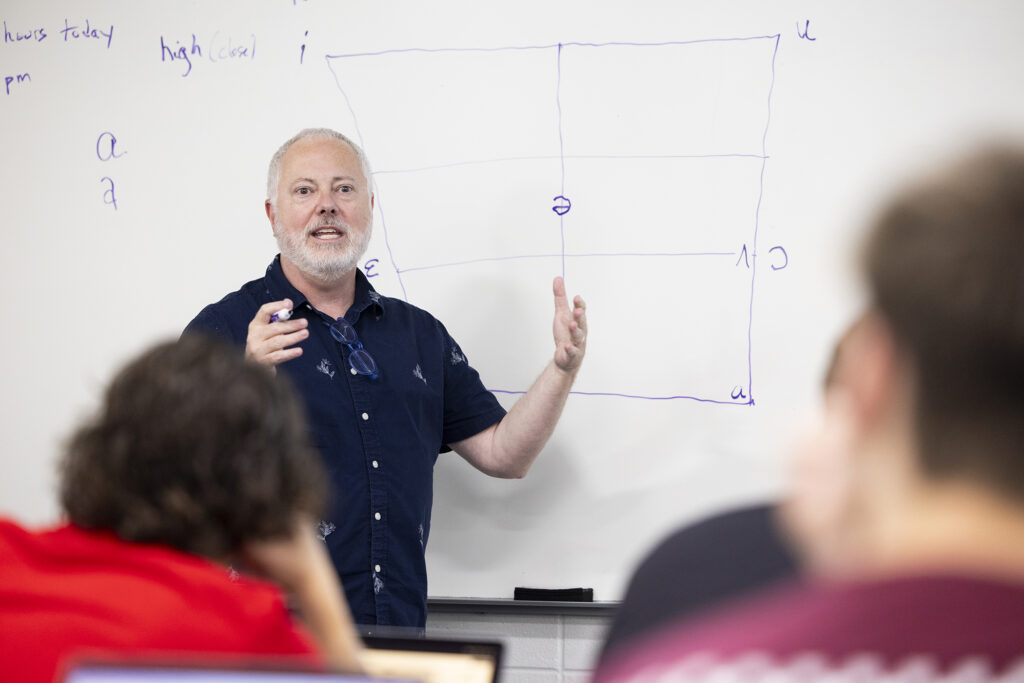Awareness about languages, the differences in how individuals speak, and how these create local identities may come as no great surprise to American Southerners.
When speakers of certain linguistic varieties decline, though, their languages become endangered. Keith Langston’s scholarship addresses questions of linguistic structure and the relationship of language and identity, with a focus on the country of Croatia.
“We always have this idea that languages are discrete entities that just exist naturally, like English, French, Spanish and Italian, and that they’re all clearly separate from one another,” said Langston, jointly appointed professor in the Franklin College of Arts and Sciences departments of Germanic & Slavic studies and linguistics.
“But in reality, on the ground, you very often have situations where you have a continuum of dialects, where they get gradually more and more different with increasing geographical distance, and where you draw the line between one language and another language is ultimately something that’s decided more on the basis of political, social and cultural factors, rather than purely linguistic criteria,” he said.
On the ground for Langston’s current research means the linguistically diverse border region of the Istrian peninsula and the Kvarner Gulf of coastal Croatia, home to speakers of three Romance languages (Istriot, Istro-Romanian, Istro-Venetian) and four different subgroups of Slavic Čakavian varieties. These Romance and Slavic varieties have developed in contact with one another for hundreds of years and are all now threatened by standard Croatian and Italian, which are official languages in this region.
Langston is lead investigator on a $450,00 National Science Foundation grant to document and study the endangered languages of the northern Adriatic Sea. Along with co-principal investigators from the department of linguistics, John Hale and Margaret Renwick, the team is working to create a searchable online collection of annotated speech recordings that can be used to study language variation and code-switching practices by multilingual speakers.
“I started working on Croatian in graduate school and did my dissertation on the Čakavian dialect group,” Langston said. “I was interested in the accentuation of these dialects, where the place of stress, the rising or falling pitch on the accented vowel and the quantity of vowels are all distinctive and can make a difference in the meaning of words.”
Langston’s fieldwork in Croatia in 1998 resulted in his first book, which has become a standard and frequently cited source for Čakavian accentuation. It also helped spark his interest in language and identity, which then informed his second book, co-authored with Anita Peti-Stantić, on language planning and national identity following the breakup of the former Yugoslavia.
“Prior to the breakup, the official language in the former Yugoslavia was known as Serbo-Croatian. Today there are four separate official languages in the region: Bosnian, Croatian, Montenegrin and Serbian. So, we were looking at language planning efforts in Croatia in the 1990s and 2000s, how they were trying to institute changes to the standard language to make it more distinctive, and how language was seen as a symbol of Croatian national identity.”
Langston says the NSF project highlights the very strong sense of local identity in the Istria-Kvarner region of Croatia, which is to some degree in conflict with the idea of national identity and the view of a uniform standard, national language in Croatia.
“Particularly in Istria, but also in other parts of the country, too, there was some resistance to the attempts to restandardize Croatian—not everybody was on board with some of the changes that people were trying to make to the language, primarily to make it more different from Serbian.”
Back at UGA, Langston was hired to coordinate the Russian language program in 1995. To create UGA’s Russian major, he wrote the proposal for the major and revised the curriculum. The Russian major was approved in 1997, and Langston led the program until 2017 when he became head of the linguistics department. The Russian major formed the basis for the more recently established Russian Flagship Program, which draws on Franklin College expertise and has proven to be a powerful UGA academic asset.
In fall semester 2023, Langston teaches the introduction to linguistics course, LING 2100 The Study of Language.
“We get students who are interested in linguistics and perhaps thinking of majoring in linguistics, but it’s also a course that satisfies Area IV of the core curriculum as well as Franklin College requirements, so we also attract students from all over the university, many of whom don’t even know what linguistics is when they come into the course,” said Langston, who was appointed director of the linguistics program in 2016, and was named department head when the department was created in 2017. “I think it’s important for senior faculty to teach these lower division courses, which I’ve done several times in the last few years.”
“Linguistics is at the intersection of many different disciplines—language is so central to who we are as human beings and is involved in virtually every aspect of our lives,” he said.









